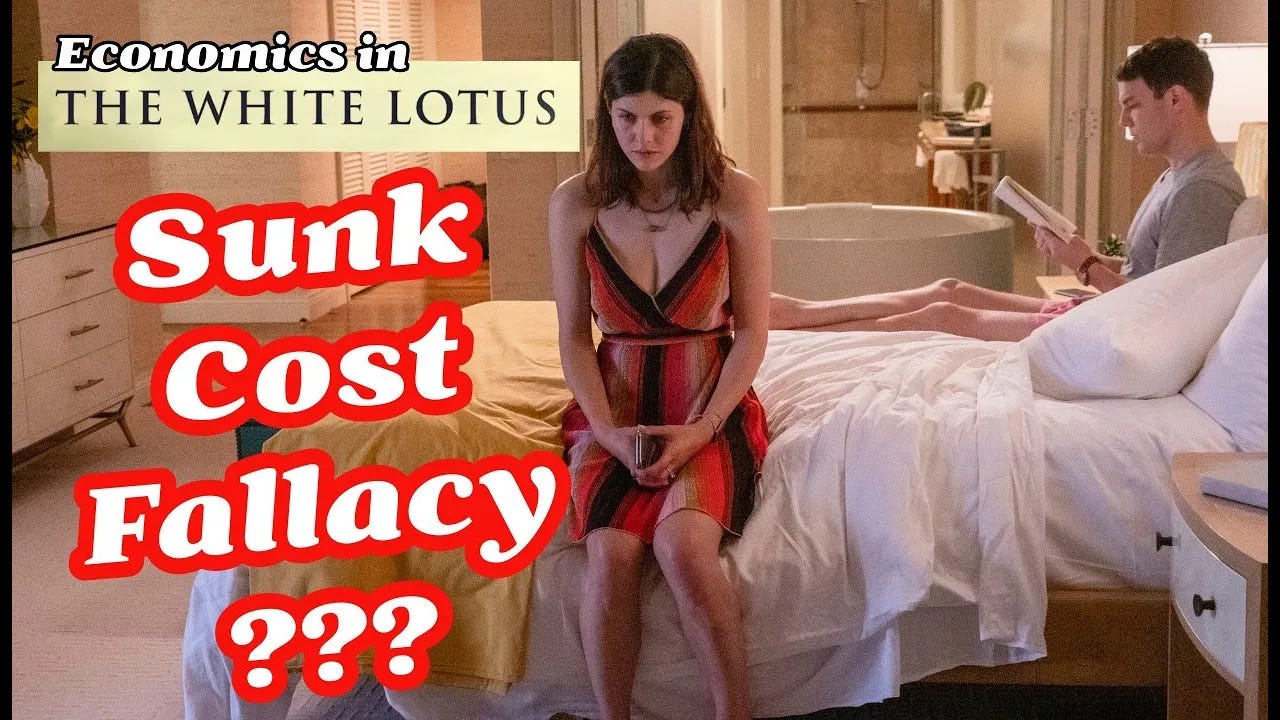Economics in The White Lotus: Shane Flips Out When He Doesn't Get His Room
Was this rationale? Or did he fall for the sunk-cost fallacy?
In HBO’s The White Lotus, Shane finds himself in a frustrating situation—he didn’t get the honeymoon suite he expected. His reaction? Persistent complaints, calls to his mother, and a growing fixation on what he should have received. But from an economics perspective, was his behavior rational? Or was he falling into a common cognitive trap?
This post and the video below explores the economic principles behind Shane’s decision-making, including the sunk cost fallacy and game theory—all through the lens of luxury hospitality and human psychology. In the video, I was pleased to be joined by Michael Enz from Virginia Tech University.
In HBO’s The White Lotus, Shane Patton finds himself in a frustrating situation—he didn’t get the honeymoon suite he expected. Naturally, not getting the room you want would be disappointing anytime but especially so on a big event, like a honeymoon. Shane’s reaction? Persistent complaints, calls to his mother, and a growing fixation /on what he should have received. From an economics perspective, was his behavior rational? Or was he falling into a common cognitive trap?
Here we explore the economic principles behind Shane’s decision-making, including the sunk cost fallacy, rational choice theory, and game theory—all through the lens of luxury hospitality and human psychology.
The Sunk Cost Fallacy: Is Shane Stuck in the Past?
One of the key economic concepts at play here is the sunk cost fallacy—the tendency to let past investments (which can’t be recovered) dictate future decisions. In Shane’s case, he believes he and his family paid for a more exclusive room. But when it becomes clear that the suite is unavailable, should he let it go or keep pushing?
Economically speaking, sunk costs should be ignored when making forward-looking decisions. The question Shane should ask is: What’s the best course of action now? Most people would think it is time to enjoy his honeymoon! But instead, he stews over the perceived injustice, risking his ability to enjoy the honeymoon and angering his bride.
Rationality vs. Emotion in Luxury Travel
Shane’s behavior also raises a bigger question: What do people really pay for in high-end hospitality? Is it just the physical room, or is it the feeling of exclusivity and status? Luxury brands thrive on delivering perceived value, and when guests feel they aren’t getting what they expect, their emotional response can override rational decision-making.
Would a purely rational Shane have dropped the issue and enjoyed the trip? Maybe. But economics isn’t just about numbers—it’s about understanding how humans actually behave, not just how they should.
Final Thoughts
While Shane’s behavior might seem irrational, it reflects real-world economic biases that affect all of us. The next time you find yourself fixating on a bad purchase, a travel mishap, or a past mistake, ask yourself: Am I making the best decision moving forward? Or am I just trying to justify what’s already lost?
If you enjoyed this, please subscribe or share with a friend. And if you have thoughts on Shane’s behavior—was he right to fight for his room, or should he have let it go?—drop a comment below!



Maybe sometimes fixating on a sunk cost is a human mechanism for reinforcing a lesson learned. I recently gave up alcohol. Every day that passes, I reflect on the growing number of days. Any perceived cost of abstinence lies in the past, but somehow the growing number of days carries more weight as I contemplate the future.